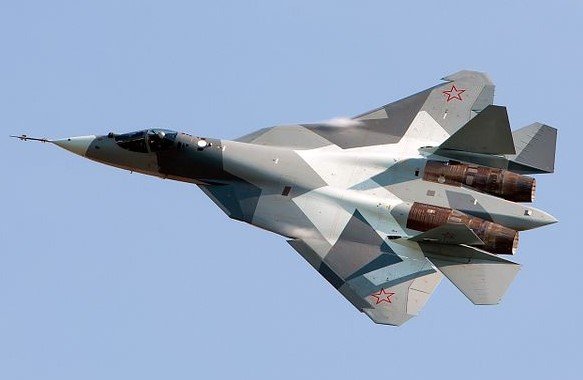Turkey and Egypt are close to sealing a major defense agreement that includes Cairo joining Ankara’s Kaan fighter jet program. Recent reports from August 2025 highlight this shift in ties, driven by shared interests in reducing reliance on foreign arms and boosting regional power.
Thawing Relations Between Turkey and Egypt
Turkey and Egypt have long faced tensions, starting with the 2013 ouster of Egypt’s Muslim Brotherhood government, which Turkey backed. President Recep Tayyip Erdogan openly criticized Egypt’s leader Abdel Fattah el-Sisi, leading to years of strained diplomacy.
The two nations also clashed over Libya, where Egypt supported eastern forces while Turkey aided the Tripoli government. Yet, recent moves show a warming trend. In September 2024, el-Sisi visited Ankara, sparking talks on defense cooperation. By May 2025, Egyptian military officials toured Turkish facilities, discussing tech transfers and joint training.
This progress ties into broader Middle East changes. Both countries seek stronger independence in defense amid global supply issues. Turkey’s removal from the F-35 program in 2019 pushed it to develop Kaan, while Egypt looks to diversify beyond U.S. and Russian suppliers.
Egypt’s air force, with over 200 F-16s, wants advanced options. Turkey offers a partnership that could cut costs and share expertise.
Key Details of the Proposed Kaan Deal
The Kaan program aims to build a fifth-generation stealth fighter. Turkey’s Turkish Aerospace Industries leads the effort, with the first prototype flying briefly in 2024. Full production targets 2030, but partnerships could speed things up.

Reports indicate Egypt will join as a co-producer, not just a buyer. This means sharing development costs, technology, and manufacturing. Ankara approved Cairo’s entry in early August 2025, per defense sources.
Other nations show interest too. Pakistan and Azerbaijan joined earlier, and Indonesia signed for 48 jets in July 2025 at a defense expo. Spain and the UAE have inquired, potentially forming a wider alliance.
The deal might include other items like Turkey’s air defense systems, similar to Israel’s Iron Dome. Egyptian delegations reviewed these in recent visits.
Here’s a quick look at Kaan’s main features:
| Feature | Description | Status |
|---|---|---|
| Generation | Fifth-gen stealth | In development |
| Engine | Twin-engine, undecided final choice | Testing options |
| Speed | Over Mach 2 | Projected |
| Range | 1,100 km combat radius | Estimated |
| Armament | Advanced missiles, domestic radar | Integrating |
This table shows why Kaan appeals to partners like Egypt.
Strategic Impacts on the Middle East
A Turkey-Egypt defense pact could reshape regional alliances. Both nations hold strong militaries, and joint production might challenge U.S. and Israeli dominance in air power.
For Turkey, more partners lower Kaan’s high costs, estimated at billions. Egypt gains access to cutting-edge tech, reducing dependence on American jets amid political strings.
Broader effects include:
- Stronger economic ties, with potential trade boosts beyond defense.
- Reduced tensions in Libya, as shared interests promote dialogue.
- A signal to other Arab states, like the UAE, for similar deals.
Analysts note this fits Turkey’s push for regional leadership. Egypt, facing economic pressures, sees value in affordable, local arms production.
However, challenges remain. Engine choices and tech integration could delay timelines. Geopolitical risks, like U.S. reactions, might complicate matters.
Global Interest and Future Prospects
Beyond Egypt, Kaan draws eyes worldwide. Indonesia’s July 2025 deal for 48 jets marks Turkey’s biggest defense export. Saudi Arabia negotiates a $6 billion package, including air and naval gear.
These moves highlight Turkey’s rising role in defense tech. The program promises jobs and innovation, with over 3,000 engineers involved.
For Egypt, joining means entering the elite club of nations building advanced fighters. Talks suggest a formal agreement by late 2025.
Experts predict this could lead to more collaborations, like joint drone projects. Turkey’s success with Bayraktar drones already interests Cairo.
Challenges and What Lies Ahead
Not everything is smooth. Turkey still seeks Eurofighter jets from Europe, with deals nearing completion. Egypt must balance ties with Washington, its top arms supplier.
Funding poses issues too. Kaan’s development needs massive investment, and partnerships help spread the load.
Despite hurdles, momentum builds. Diplomatic sources expect quick progress, with benefits for both militaries.
If this deal happens, it marks a new era in Turkey-Egypt relations, turning rivals into partners.
What do you think about this defense shift? Share your views in the comments and spread the word to keep the conversation going.
